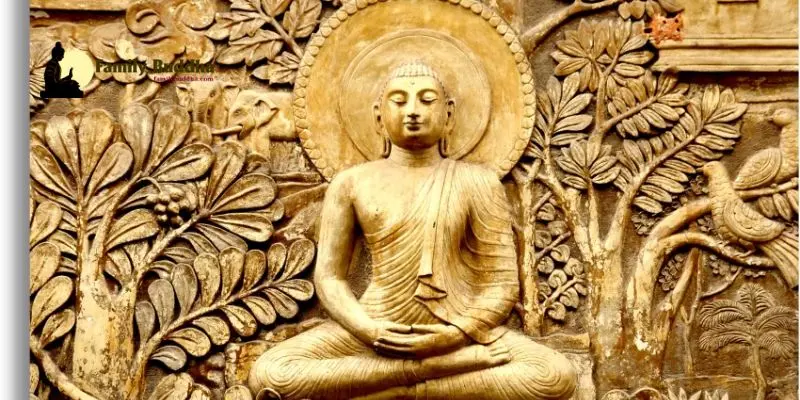Can you be a Buddhist Christian? The recent appointment of Rev. Kevin Thew Forrester as Bishop of Northern Michigan has sparked a profound and nuanced inquiry into the potential compatibility of Christianity and Zen Buddhism. Dr. Chic Kaw Tan, a distinguished member of the Church of England General Synod and a convert from Buddhism to Christianity offers his insightful perspectives on this intricate and multifaceted discussion. B
y delving into the complexities inherent in navigating these two distinct spiritual paths, Dr. Tan sheds light on the profound theological and philosophical questions that arise when contemplating their potential integration. Let’s discover at Familybuddha.
Exploring the Intersection of Christianity and Buddhism

In the contemporary Western cultural landscape, there exists a palpable allure surrounding Eastern mysticism, particularly Buddhism, which often captivates individuals with its promise of inner tranquility, spiritual depth, and mindfulness practices. This allure stands in stark contrast to the diverse expressions of Western Christianity, which span a spectrum from formal and ritualistic to emotional and experiential. To many, Buddhism presents itself as a potential antidote to what they perceive as the limitations or shortcomings of traditional Western religious practice.
However, the prospect of blending Buddhism with Christianity raises profound theological questions and challenges deeply held convictions within both faith traditions. While there may be superficial similarities or points of resonance between certain aspects of Buddhist and Christian teachings, the underlying worldviews, theological foundations, and understandings of ultimate reality differ significantly. Thus, any attempt to synthesize these two traditions must navigate a complex terrain of theological, philosophical, and practical considerations.
Key Disparities and Conceptual Contrasts

Upon closer examination, significant disparities between Buddhist and Christian beliefs become apparent. Buddhism, encompassing various schools of thought including Zen Buddhism, emphasizes the impermanent nature of existence, the cycle of birth, death, and rebirth (samsara), and the pursuit of enlightenment (nirvana) through the cultivation of wisdom, ethical conduct, and meditation practices. In contrast, Christianity asserts the existence of a personal and transcendent God, the reality of sin and redemption through the atoning sacrifice of Jesus Christ, and the promise of eternal life in communion with God.
The conceptual contrasts between these two traditions extend to fundamental theological doctrines, such as the nature of ultimate reality, the understanding of human suffering and salvation, and the eschatological vision of the future. While both traditions may share common ethical principles or moral values, the underlying metaphysical frameworks and soteriological paradigms diverge in profound ways.
Can you be a Buddhist Christian?

In contemplating the possibility of embracing both Christianity and Buddhism simultaneously, individuals are confronted with the challenge of reconciling seemingly incompatible worldviews, theological commitments, and spiritual practices. While syncretistic approaches may attempt to blend elements from both traditions into a cohesive synthesis, such endeavors often risk diluting the distinctive insights and profound truths of each tradition.
Moreover, the integrity of individual belief systems necessitates a discerning and thoughtful engagement with the teachings and practices of both Christianity and Buddhism. Any attempt to synthesize these traditions must be grounded in a deep understanding of their respective theological frameworks, historical contexts, and spiritual aspirations.
The Case of Rev. Forrester and the Quest for Spiritual Depth
In light of Rev. Forrester’s claim to walk the path of Christianity and Zen Buddhism, there arises an opportunity for empathy, introspection, and critical reflection. His journey underscores the complex interplay between personal spirituality, cultural context, and theological conviction. While his quest for spiritual depth may resonate with many who seek to transcend the confines of conventional religious categories, it also raises important questions about the coherence of embracing seemingly contradictory beliefs and practices.
Ultimately, the question of whether one can authentically embrace both Christianity and Buddhism simultaneously demands a nuanced and thoughtful exploration of theological principles, spiritual commitments, and existential questions. While the pursuit of spiritual synthesis is a legitimate and deeply personal endeavor, it must be undertaken with humility, integrity, and a sincere desire for deeper understanding and spiritual growth.
Conclusion
Can you be a Buddhist Christian? As individuals navigate the complex terrain of religious pluralism and spiritual diversity, they are called to approach these questions with intellectual rigor, humility, and openness to new insights and perspectives. While the exploration of diverse spiritual traditions is a valuable and enriching endeavor, it must be undertaken with respect for the integrity of each tradition’s teachings and a commitment to authentic spiritual inquiry.
Ultimately, the quest for spiritual depth and meaning transcends the boundaries of any single religious tradition, inviting individuals to explore the richness and diversity of human spiritual experience with reverence, curiosity, and an unwavering commitment to truth. As we engage in this profound dialogue, may we do so with humility, empathy, and a deep respect for the complexity and mystery of the human search for meaning and transcendence.










